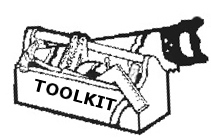Writing Rx and Overdose

To quote the great golf teacher, Harvey Pennick, “. . . tips are like aspirin. One may do you good, but if you swallow the whole bottle you will be lucky to survive.”
The following 10 rules are widely accepted, but should be taken with caution. These “powerful drugs” can benefit you—but only if they address your particular malady. Remember, all medicines are potential poisons, and the side effects may outweigh the benefits. So please take writing advice (including mine) as you would medicine—only as needed.
TEN RULES
1 Use no dialog tags other than “said.”
2 Never use an adverb to modify the verb “said.”
3 Avoid using adjectives, except those of color, size and number.
4 Avoid detailed descriptions of characters, places, or things.
5 Never use the word “suddenly”
6 Avoid using adverbs.
7 Never open a book with weather.
8 Avoid flashbacks.
9 Avoid prologues.
10 Try to leave out the part that readers tend to skip.
Let’s examine the first two, the ones concerning dialog.
Dialog Rule #1 Use no dialog tags other than “said.”
So rule #1 seeks to avoid the amateurish technique of “thesaurus tapping” whereby perhaps odd dialog tags are sprinkled around so as to become distracting to the reader. Remember that the writing, like the author, should be “invisible.” You want your reader to be in the story, not the mechanics of your writing. However, are we really supposed to throw away all our tag words except “said?”

All words are tools. Why throw them away? Use them to say something. A dialog tag should not be relegated to keeping track of who is speaking. Words like “murmured,” “ muttered,” “whispered” and “sobbed” are useful and “invisible” if employed with skill. They add color, nuance, and emotion.
Dialog rule #2 Never use an adverb to modify the verb “said” (or other tags).
I suppose this medicine is intended to keep you from unnecessarily qualifying the way your characters deliver their lines. I get it. However, since an adverb is a word, and since every word is a tool of thought and expression, employ one if it is the best tool for the job.
Compare these two lines of dialog:
“Don’t you ever say that again,” she whispered harshly.
“Don’t you ever say that again,” she said.
Which is the more vivid expression?
Published on April 19, 2016 12:09
•
Tags:
dialog, free-advice, style, writing-rules
No comments have been added yet.
Musings and Mutterings
Posts about my reading, my writing, and thoughts I want to share. Drop in. Hear me out. And set me straight.
- A.R. Simmons's profile
- 59 followers



